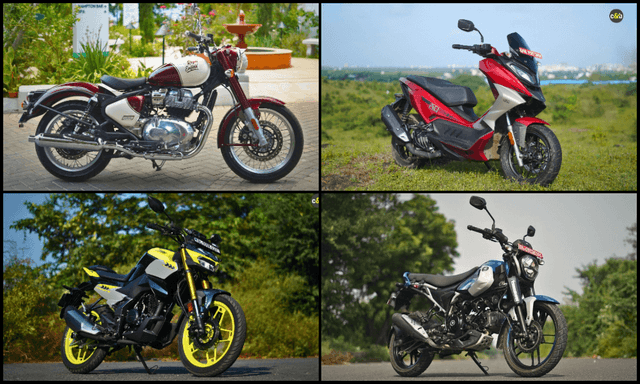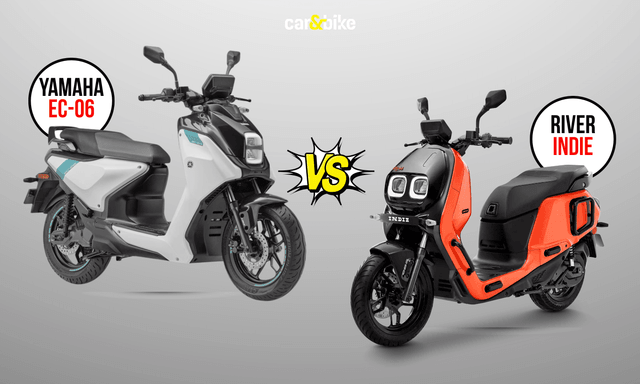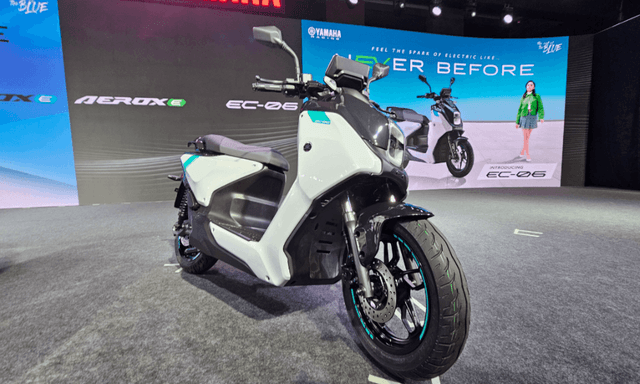About 76 Per Cent Indians Would Charge Their EVs At Home, Says New Deloitte Study

- Around 59 per cent Indian consumers are concerned about climate change.
- People opting for Plug-In Hybrid Vehicles accounted for 11 per cent.
- A third of Indian consumers expressed interest in electrified and hybrid.
A recent Global Automotive Consumer Study 2022 done by Deloitte reveals that more than a third of Indian consumers expressed interest in electrified and hybrid vehicles, as the segment sets steam with India's focus on environment-friendly, locally manufactured, and sustainable solutions post-pandemic. According to the study, around 59 per cent of Indian consumers are concerned about climate change, pollution levels, and petrol/diesel vehicles emissions, indicating that consumers' interest in EVs is due to the perception of lower fuel costs, environmental consciousness, and a better driving experience.
Also Read: NHEV Working Group Meet NITI Aayog; Discuss New Battery Swapping Policy
With a sample size of 895 persons, across a range of age bracket between men & women, about 58 per cent voted for a petrol/diesel vehicle as their next purchase, while 21 per cent would opt for a hybrid vehicle. People opting for Plug-In Hybrid Vehicles or PHEVs accounted for 11 per cent, while those wanting a fully electric car consisted of only 5 per cent. However, the report does emphasise the fact that almost 78 per cent of people would opt for electric vehicles that are priced between Rs. 5 lakh to Rs. 25 lakh, considering the subsidies these vehicles attract from the Central and State governments. Another reason listed in the study suggests that a consumer would be drawn towards an EV for its low cost of maintenance, low cost of running, better driving experience, and the tax benefits it attracts.

About 76 per cent of consumers want to charge their EVs at home instead of an office.
The study also suggests that a decision to purchase an electrified vehicle largely depends on the cost of electricity and that if it is in balance with the cost of current fossil fuels, then transitioning to an EV would be a simpler choice. About 61 per cent said they would still be very interested in acquiring an electrified vehicle even if the electricity used for mobility was priced like current fossil fuels, while 37 per cent said they would rethink their decision to acquire an electrified vehicle. Only 2 per cent said they aren't sure if this would change their decision. However, when it comes to charging, about 76 per cent of consumers would want to treat their EVs as a smartphone and charge them at home instead of the office or at a public charging station, for convenience reasons. However, it remains uncertain if charging an EV at home would create pressure on the existing power grid.
Also Read: What Is The Cost Of Setting Up An EV Charging Station in India
The Indian government also recently revised the rules for the EV charging infrastructure and allowed the respective owners to charge their EVs using the existing electricity connections at homes or offices. This effort will give an additional push to Indians for adopting EVs soon. Beyond being a sustainable solution to the consumers, EVs are also cost-effective. With the rising demand, many auto manufacturers and OEMs have started getting into strategic partnerships to drive adoption across the country. These positive developments have led to an array of investors already showing interest in capitalising on this opportunity.

Almost 78 per cent of people would opt for electric vehicles that are priced between Rs. 5 lakh to Rs. 25 lakh.
Rajeev Singh, Partner, Deloitte India said, “Riding on the crest of evolving customer needs and disruptive innovations, the Indian automotive industry is going to witness a new era of growth. Our latest study delves deep into the changing consumer perceptions indicating a significant increase in the number of consumers who are evaluating alternate power train options and this is likely to drive the growth of EVs (especially two and three-wheelers) in the country.”
Also Read: How to Charge Your Electric Car
The report also lauds the latest policy developments announced in this year's Union Budget on battery swapping and charging infrastructure, as these are likely to boost consumer confidence and enable a way to address the challenges around adoption. Additionally, the survey also revealed the growth of a latent need for subscription-based models to cater to the ever-evolving needs of millennials and GenZs with its flexible ownership ability. Subscription of services provided by various automakers helps Indian consumers attain a variety of vehicle ownership options without owning it. Consumers have gotten used to rental services and are now looking for long-term solutions that are convenient and cost-effective.
Latest News
 car&bike Team | Feb 2, 2026Car Sales January 2026: Six Marutis in Top 10, But Tata Nexon Takes Top SpotTata Motors sold 23,365 units of the Nexon, creating a clear gap to the Maruti Suzuki Dzire, which finished second with 19,629 units.1 min read
car&bike Team | Feb 2, 2026Car Sales January 2026: Six Marutis in Top 10, But Tata Nexon Takes Top SpotTata Motors sold 23,365 units of the Nexon, creating a clear gap to the Maruti Suzuki Dzire, which finished second with 19,629 units.1 min read car&bike Team | Feb 2, 2026Maruti Suzuki Victoris Crosses 50,000 Sales Milestone In 4 monthsThe compact SUV launched at the onset of festive season has crossed the 50,000 sales mark in about 4 months1 min read
car&bike Team | Feb 2, 2026Maruti Suzuki Victoris Crosses 50,000 Sales Milestone In 4 monthsThe compact SUV launched at the onset of festive season has crossed the 50,000 sales mark in about 4 months1 min read car&bike Team | Feb 2, 2026Two-Wheeler Sales January 2026: Hero MotoCorp, TVS, Royal Enfield, Suzuki Report Sustained GrowthMost brands have reported year-on-year growth in the first month of CY26.2 mins read
car&bike Team | Feb 2, 2026Two-Wheeler Sales January 2026: Hero MotoCorp, TVS, Royal Enfield, Suzuki Report Sustained GrowthMost brands have reported year-on-year growth in the first month of CY26.2 mins read car&bike Team | Feb 2, 2026Maruti Suzuki Announces Price Protection Amid Long Waiting PeriodsCountry’s largest carmaker has said that prices of the cars will not be increased for customers who have already made the bookings1 min read
car&bike Team | Feb 2, 2026Maruti Suzuki Announces Price Protection Amid Long Waiting PeriodsCountry’s largest carmaker has said that prices of the cars will not be increased for customers who have already made the bookings1 min read Jafar Rizvi | Feb 2, 2026Yamaha EC-06 vs River Indie: How Different Are The Two Electric Scooters?The EC-06 shares its foundation with the River Indie, and here we look at the differences between the two.3 mins read
Jafar Rizvi | Feb 2, 2026Yamaha EC-06 vs River Indie: How Different Are The Two Electric Scooters?The EC-06 shares its foundation with the River Indie, and here we look at the differences between the two.3 mins read Jafar Rizvi | Feb 2, 2026Yamaha EC-06 E-Scooter Launched In India At Rs 1.68 LakhThe EC-06 marks Yamaha’s entry into the electric scooter segment in India.2 mins read
Jafar Rizvi | Feb 2, 2026Yamaha EC-06 E-Scooter Launched In India At Rs 1.68 LakhThe EC-06 marks Yamaha’s entry into the electric scooter segment in India.2 mins read
 Preetam Bora | Feb 2, 2026TVS NTorq 150 Road Test Review: Bigger, Better & More Efficient!We test the new TVS NTorq 150 out in the real world to get a sense of what it offers in terms of performance, dynamics and fuel economy.7 mins read
Preetam Bora | Feb 2, 2026TVS NTorq 150 Road Test Review: Bigger, Better & More Efficient!We test the new TVS NTorq 150 out in the real world to get a sense of what it offers in terms of performance, dynamics and fuel economy.7 mins read Bilal Firfiray | Jan 21, 2026Tata Punch Facelift Review: New Turbo Engine; Same Old SoulWith the update, the Tata Punch facelift retains its character of being a healthy runabout, which is perfect for Indian roads. But have these changes made it any better?7 mins read
Bilal Firfiray | Jan 21, 2026Tata Punch Facelift Review: New Turbo Engine; Same Old SoulWith the update, the Tata Punch facelift retains its character of being a healthy runabout, which is perfect for Indian roads. But have these changes made it any better?7 mins read Amaan Ahmed | Jan 17, 2026Bajaj Chetak C25 First Ride Review: Basic, Likeable E-Scooter For First-Time RidersThe Chetak C25, in quite a few ways, is poles apart from the larger and more powerful 30 and 35 Series models, but in its mannerisms, it is very much a Chetak.8 mins read
Amaan Ahmed | Jan 17, 2026Bajaj Chetak C25 First Ride Review: Basic, Likeable E-Scooter For First-Time RidersThe Chetak C25, in quite a few ways, is poles apart from the larger and more powerful 30 and 35 Series models, but in its mannerisms, it is very much a Chetak.8 mins read Bilal Firfiray | Jan 9, 2026Toyota Urban Cruiser Hyryder: 10,000 km Long-Term ReviewAfter spending over three months and 10,000 km with the Toyota Urban Cruiser Hyryder Hybrid, we were impressed by its real-world mileage, seamless hybrid, practical comfort, and Toyota reliability. Is it the best C-SUV then?5 mins read
Bilal Firfiray | Jan 9, 2026Toyota Urban Cruiser Hyryder: 10,000 km Long-Term ReviewAfter spending over three months and 10,000 km with the Toyota Urban Cruiser Hyryder Hybrid, we were impressed by its real-world mileage, seamless hybrid, practical comfort, and Toyota reliability. Is it the best C-SUV then?5 mins read Seshan Vijayraghvan | Jan 8, 20262026 Mahindra XUV 7XO Review: Big On Tech, Bigger On ComfortThe new Mahindra XUV 7XO is flashier, feature packed, and comes with more advanced tech. But are the changes just incremental or actually substantial?1 min read
Seshan Vijayraghvan | Jan 8, 20262026 Mahindra XUV 7XO Review: Big On Tech, Bigger On ComfortThe new Mahindra XUV 7XO is flashier, feature packed, and comes with more advanced tech. But are the changes just incremental or actually substantial?1 min read


























































































































